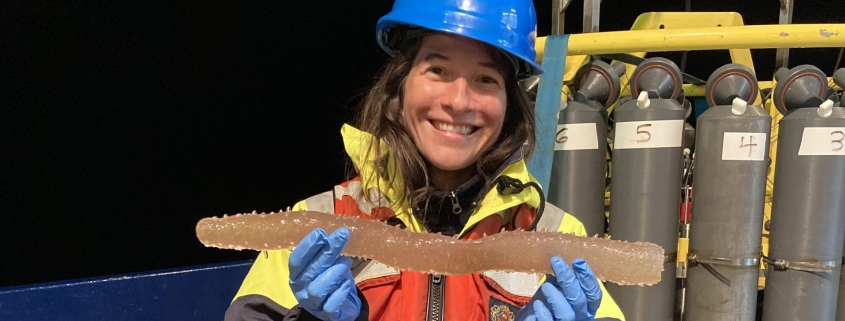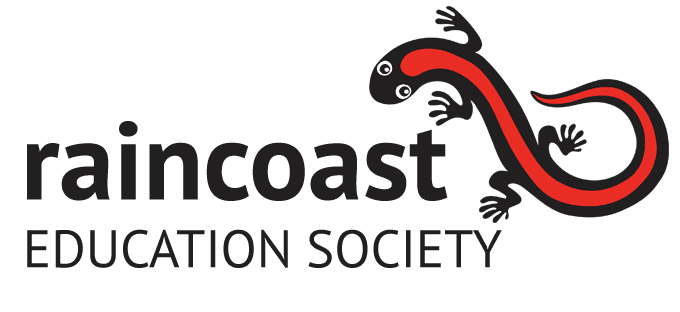
Introducing two unique gelatinous zooplankton and their roles in the ocean.
Salps and pyrosomes are zooplankton – free floating animals that drift with the ocean currents. They are unique because they have gelatinous bodies, similar to cnidarian jellies, but unlike jellyfish they don’t have stingers and primarily consume phytoplankton. They are part of a group called ‘thaliaceans’, also related to sea-squirts, which you might be surprised to find out are our closest relatives among all the plankton! They share the remarkable life-history characteristic of alternating sexual and asexual reproduction, which allows their populations to boom (also known as a ‘bloom’) when food is in excess. Each animal is called a ‘zooid’ – when salps bloom they produce chains of hundreds of zooids that can turn the water to jelly over the course of a few days! Salps are also spectacular ‘poop-machines’: they can filter out both large and submicron particles for consumption, and repackage these into fast-sinking pellets that can rapidly export carbon out of the sunlit part of the ocean. These ‘ocean Roombas’ rapidly mow down phytoplankton blooms by coupling their jet-propulsive swimming with their feeding, filtering large quantities of water every day. A large Salpa sp. zooid, such as those found in both the North Pacific and the Southern Ocean, can grow up to ~5 inches long and filter 5-10 gallons of seawater per day. Pyrosomes get their name from the Greek work ‘pyro’, which means ‘fire’, since they are bioluminescent and their bodies can light up at the sea at night. They also can consume large quantities of small and large particles, but unlike salps, their poop is tiny! This is because each pyrosome is actually a colony of hundreds of tiny zooids, each with its own digestive system and connected through a common canal that propels the animal forward through gentle currents. During this talk, you will learn about salp and pyrosome biology, as well as the unique roles they play in ocean foodwebs and biogeochemical cycling.

About our speaker: Dr. Moira Décima is an Assistant Professor at the Scripps Institution of Oceanography and the Curator of the Pelagic Invertebrate Collection. Dr. Décima combines field work on global class vessels, samples from Collections and experimental manipulations, to answer fundamental questions related to plankton food-web structure and function, species distributions and diversity, and the role of zooplankton in biogeochemical cycling – all within a broader context of ecosystem response to climate change. Her earlier research foci include using compound-specific isotope analysis of amino acids (CSIA-AA) to assess the importance of the microzooplankton-mesozooplankton link to the broader pelagic food web, and quantifying energy transfer through both auto- and hetero- trophic pathways. More recently, she has focused her attention on gelatinous zooplankton, specifically salps and pyrosomes, which affect trophic interactions and biogeochemistry in fundamentally different ways than their crustacean counterparts, and might be shiftingtheir distributions in response to climate change. In addition to investigating the role of salps in marine ecosystems, her lab is currently investigating the effect of ocean acidification and hypoxia on thecosome pteropods, the impact of wildfires on marine pelagic communities, applying DNA metabarcoding to investigate zooplankton community structure, and the impact of pyrosomes on the California Current Ecosystem (CCE). Her current sea-going program is conducted within the CCE Long Term Ecological Research Program (CCE-LTER).

